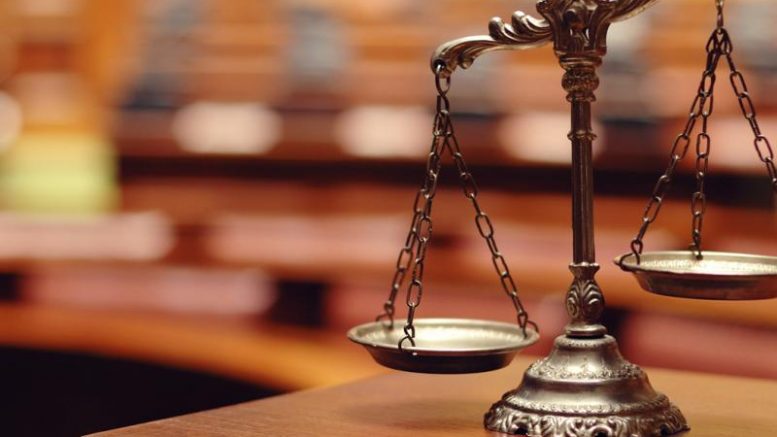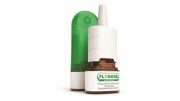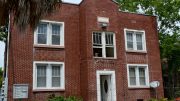A proposed constitutional amendment on attorneys’ fees and damages in medical lawsuits is being challenged by the Arkansas Bar Association, which filed a lawsuit Monday alleging that voters will be deceived by the wording approved for the Nov. 8 general election ballot.
Lawyers and medical interests have lined up on opposing sides of the proposed amendment, also known as Issue 4, which would limit attorneys’ fees to one-third of damages, after court costs, in suits brought against medical care providers. The amendment also would require the General Assembly to set a cap for “pain and suffering” damages that is at least $250,000.
The suit comes days after the bar association filed to create its own ballot committee to raise money and oppose the amendment. It is the second group formed against the amendment that receives funding from lawyers. Two groups for the amendment have the backing of doctors, pharmacists and nursing home owners. Both sides accused the other of operating on behalf of special interests.
The bar association’s lawsuit was filed with the Arkansas Supreme Court against Secretary of State Mark Martin in his official role of certifying ballots and election results. If there is not enough time to remove the proposal from the ballots before they are printed, the lawsuit seeks an order that the votes not be counted.
Health Care Access for Arkansans, the ballot committee which collected signatures for the proposal, accused the bar association of trying to take issue out of the hands of voters.
“These attorneys profit from lawsuits for a living, so it’s no surprise to see them try the lawsuit tactic here, too,” wrote Health Care’s director, Chase Dugger. “This lawsuit aims to protect these lawyers’ ability to maximize profits when going after our hospitals, doctors and other health-care professionals.”
Earlier this month, Martin approved the number of valid signatures obtained by the Health Care Access ballot committee and certified the proposal for the ballot.
In April, Attorney General Leslie Rutledge approved the full name of the measure, “An Amendment to Limit Attorney Contingency Fees and Non-Economic Damages in Medical Lawsuits,” as well as a brief expanded title explaining its purpose.
But the proposal goes so far as to limit the abilities of patients and their families to sue in court and have a jury determine the amount of their compensation, officials with the bar association said at a news conference announcing the lawsuit Monday.
“Voters would not give up their own rights if they knew that was the purpose of their measure,” association President Denise Hoggard said.
Scott Trotter, the association lawyer who prepared the lawsuit, presented a list of 12 “flaws” in the ballot title which have the effect of misleading voters. The most egregious, he said, was the lack of definitions regarding terms such as “health-care professional,” “medical injury” and “non-economic damages.”
The text of the amendment includes a section defining those terms that is almost as long as the ballot title itself. It also includes a provision allowing the General Assembly to expand upon some of the definitions.
The lawsuit also alleges the ballot title misleads voters by not clearly describing provisions allowing the Legislature to make laws creating penalties for lawyers who charge excessive fees in medical cases, and mandating how life expectancy and other factors can be used to calculate payments.
The extent of the provisions of the law have the effect of usurping the separation of powers by granting more of the court’s discretion to the Legislature, according to the suit.
Trotter said he chose to challenge the proposed amendment’s title rather than the number of signatures the amendment received because the cost to review the more than 131,000 signatures was too high. He also declined to call the amendment unconstitutional, but did not rule out further legal action should the lawsuit fail and the amendment pass.
“I’m not here to debate all the merits of the proposal, I’m just here to argue that the voters should not be misled,” Trotter said.
Arkansas voters are given a five-minute time limit when voting, and the titles which describe proposed initiatives and amendments are required to be “brief and concise,” according to Arkansas Code Annotated 7-9-107.
However, the attorney general and judges can also deny ballot titles for being overly partisan or for leaving out information that could sway the voter.
Trotter, who said he has litigated both in favor of and against ballot titles before, described one example where a judge ruled that a ballot title was both too long for the voter to read, and to short to supply the essential information.
After the bar association announced its lawsuit Monday, the Committee to Protect AR Families, which was started by advocates for nursing home patients opposed to the amendment, released a statement applauding the action.
“How is it fair for a corporate nursing home owner to change the constitution to give himself special protections,” said committee director Martha Deaver. “We will continue to look at and expose the deception perpetrated by the proponents of Issue 4.”
The Arkansas Supreme Court has previously ruled on the substance of limiting damages from medical lawsuits. In 2011, the court found that such a law passed by the Legislature in 2003 was unconstitutional.
For more information visit the source link below.
Source: www.arkansasonline.com




